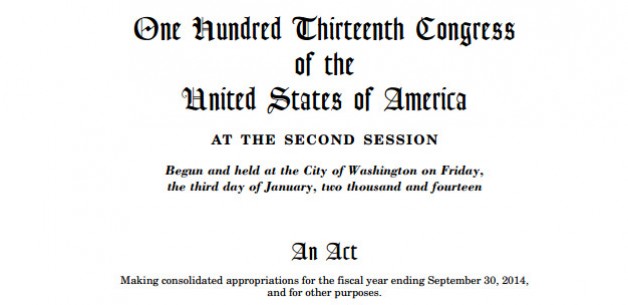The recently passed omnibus spending package clearly supports the broad poverty alleviation goals of the international financial institutions (IFIs)—fully funding most of them despite making difficult cuts elsewhere in the budget—but makes clear that their work must be subjected to effective safeguards against harms to people and the environment. This message should be heard loud and clear by the World Bank, which is currently undergoing a massive restructuring, as well as a lengthy review of its social and environmental safeguard policies. In the coming months, the U.S. Congress will also be asked to authorize a three-year commitment to IDA, the World Bank’s fund for the world’s poorest countries, which in years past has served as an opportunity to advance significant reforms at the Bank.

Patrick Leahy, Chairman of the Senate Appropriations subcommittee, responsible for annual appropriations to international development and aid programs, including IFIs.
Although the legislation sets clear priorities for the U.S. to pursue at the IFIs over the next several months, most of the bill’s language calls for actions by the U.S. government and its representatives at the IFIs that are not binding on the institutions themselves. The new reporting requirements this bill places on the U.S. Treasury will join the vast number of IFI-related mandates that have been created over the years. Many of these mandates are crucial to ensuring that the U.S. plays a leading role in making sure that the IFIs are responsive to the needs of project-affected communities. However, their sheer number—coupled with limited resources within the Treasury Department—often leads to a scattered approach to U.S. policy at institutions like the World Bank. We welcome the use of the legislative process to send strong messages to the IFIs, particularly in pushing them to adopt policies and procedures that are better in line with highest international standards, but we also hope that it will ultimately contribute to the development of a clear, coordinated long-term U.S. agenda at the IFIs.

Kay Granger, Chairwomen of the House Appropriations subcommittee, responsible for annual appropriations to international development and aid programs, including IFIs.
The full text of the omnibus bill can be found here. A few IFI-related highlights include:
- Treasury must certify that each institution requires independent, outside evaluations of each project that include its impact on poverty reduction and equitable economic growth, consistent with effective safeguards, or funding to the institution will be withheld.
- The U.S. executive director of each IFI must seek to ensure that each institution responds to the findings and recommendations of its accountability mechanism by providing redress for human rights violations.
- The Secretary of the Treasury must instruct the U.S. executive director of each IFI that it is the policy of the U.S. to oppose any loan, grant, strategy or policy that supports the construction of any large hydroelectric dam. More information on this provision can be found here.
- The Secretary of the Treasury must instruct the U.S. executive director of each IFI that it is the policy of the U.S. to vote against financing to support or promote the expansion of industrial-scale logging or extractive activity in areas that are primary/intact tropical forest.
- The U.S. executive director of the World Bank and Inter-American Development Bank must report to the Appropriations Committees on progress toward implementing a 2010 reparations plan for victims of the massacres and forced displacement resulting from the Chixoy Hydroelectric Dam in Guatemala. A separate provision (Section 7045(c)) conditions funds to the Guatemalan army on whether the Government of Guatemala is taking credible steps to implement the plan. More information on the Chixoy provisions can be found here.
- The U.S. executive director of each IFI must oppose financing for activities that directly or indirectly involve forced evictions in Ethiopia.
- The U.S. executive director of the World Bank must report to the Appropriations Committees on progress toward providing appropriate redress for the Boeung Kak Lake families who were harmed by the Land Management and Administration Project in Cambodia, including legal security of tenure to those excluded from receiving land titles. The report must also include steps taken by the U.S. executive director to postpone re-engagement in Cambodia until redress is provided. More information on this provision can be found here.

